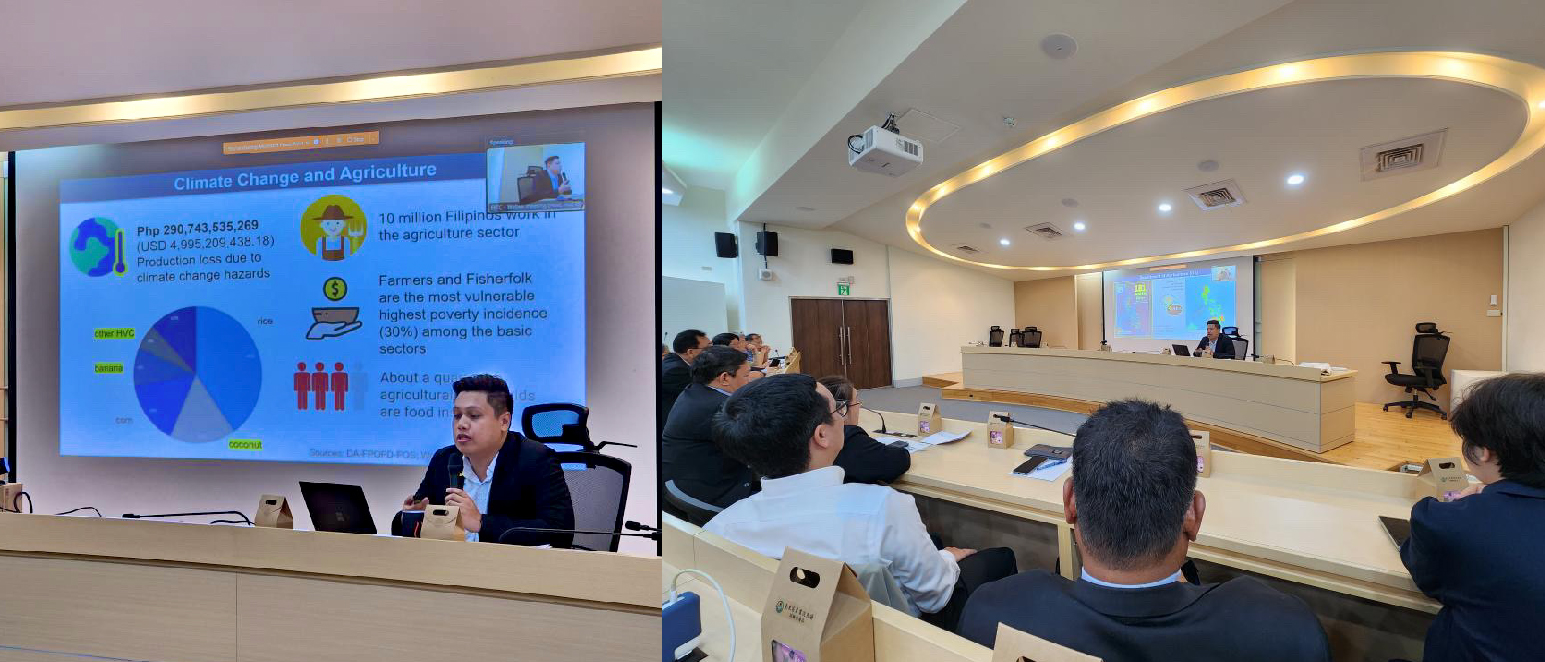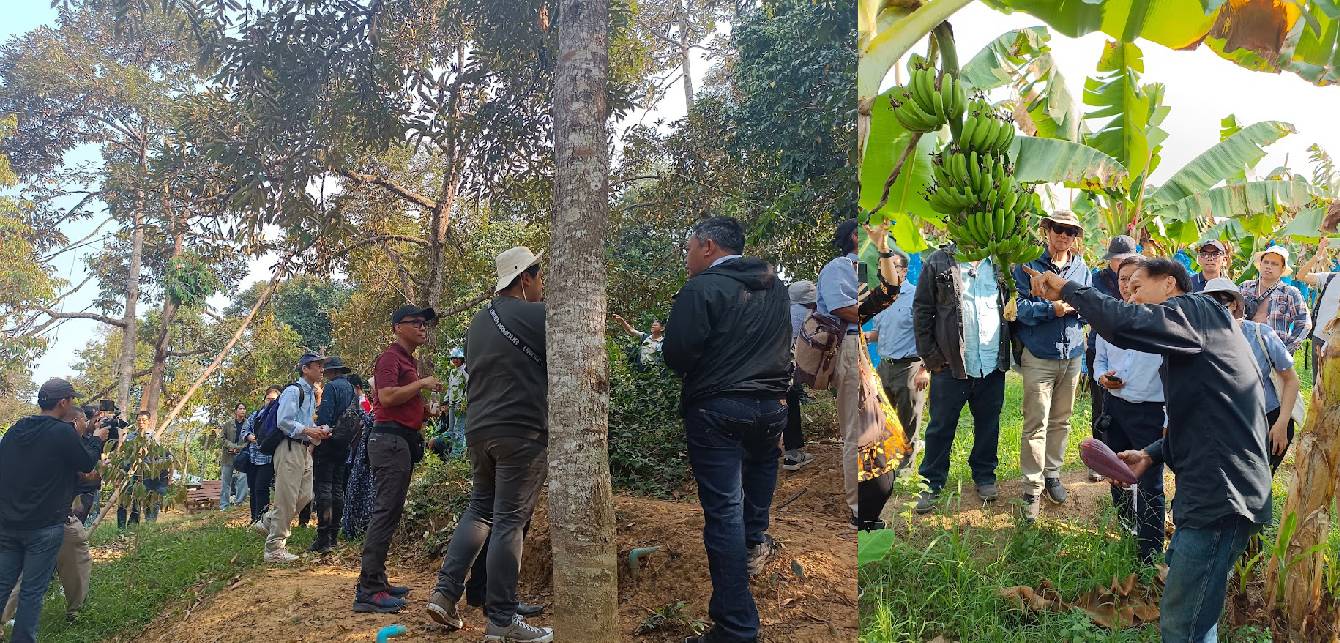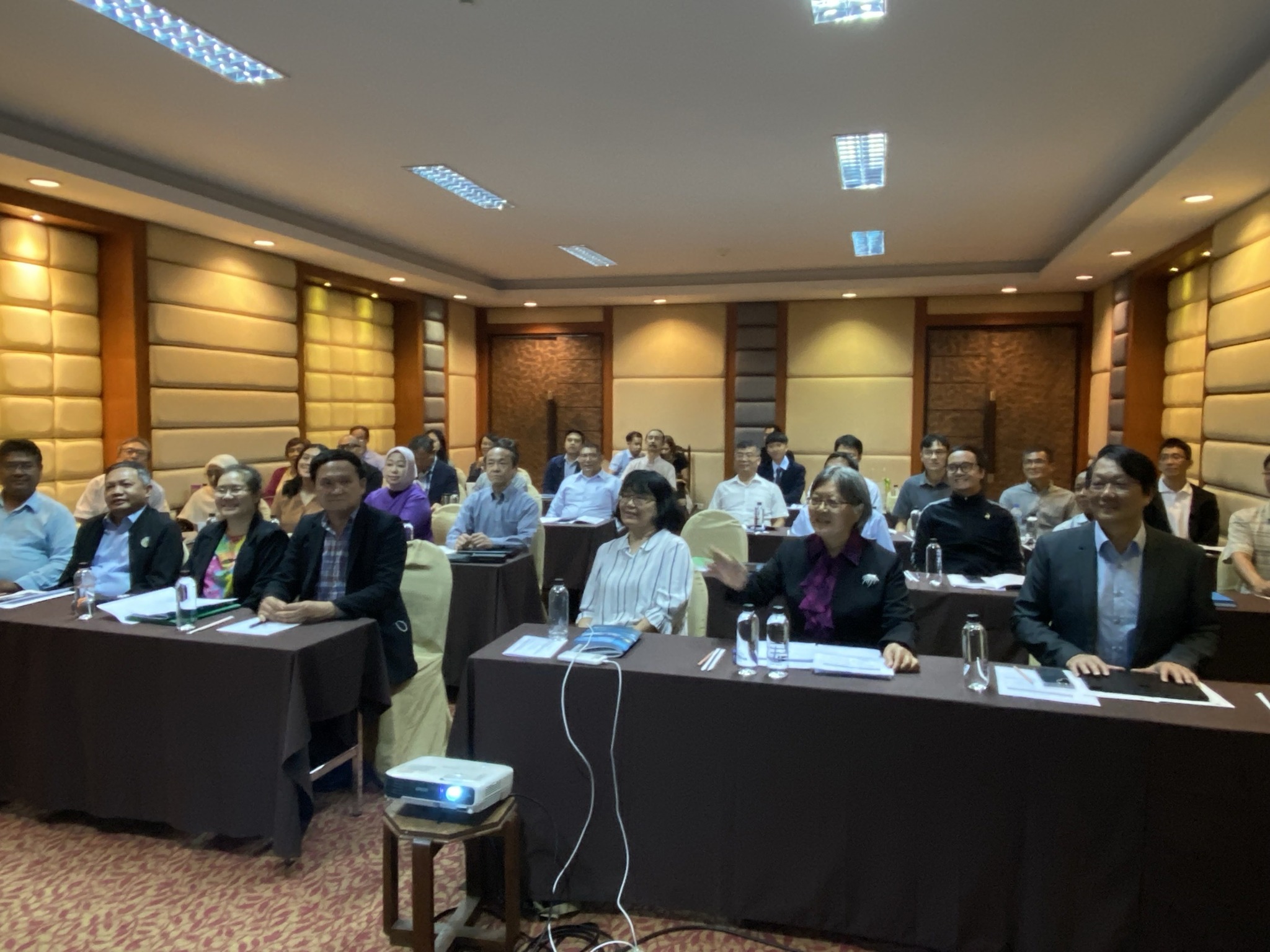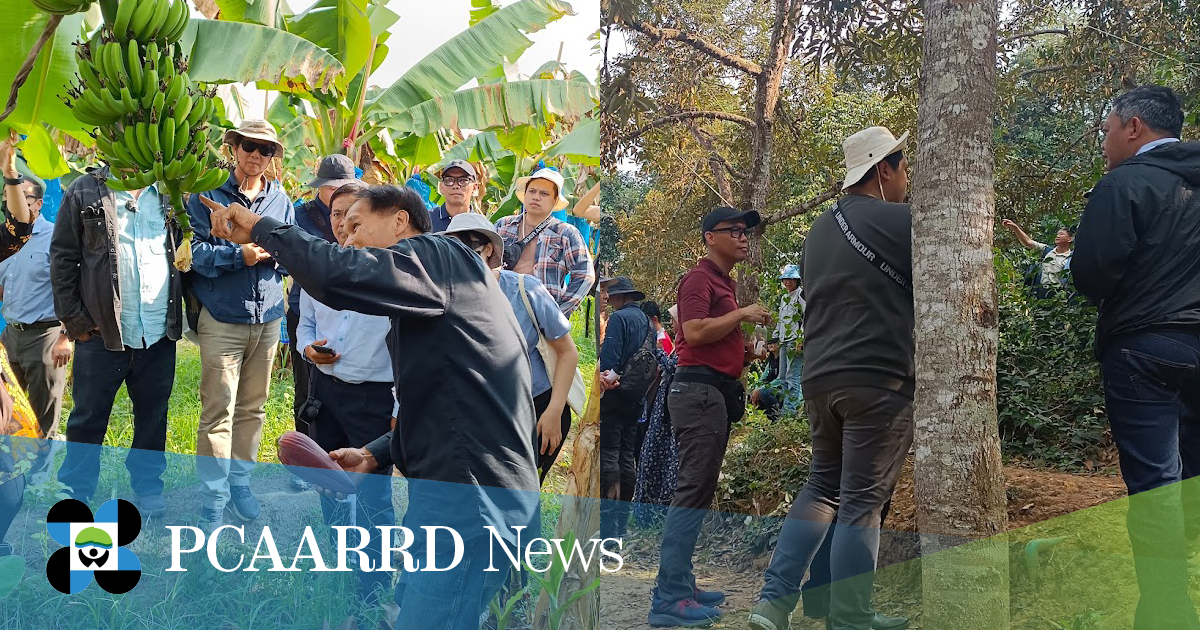
Mr. John Benrich Zuniga from the Forestry and Environment Research Division (FERD) during the country report presentation held last May 30, 2024. (Image credit: FERD, DOST-PCAARRD)
The Philippine Council for Agriculture, Aquatic and Natural Resources Research and Development of the Department of Science and Technology (DOST-PCAARRD) takes part in an international collaborative project, “Tropical Fruit Consortium-Addressing climate change impacts on tropical fruit production and strategies of adaptation and mitigation (DFNet III),” spearheaded by the Food and Fertilizer Technology Center (FFTC).
The DFNet III project aims to discuss and identify mitigation strategies for addressing the impact of climate change on smallholders in tropical fruit production. One of the project’s major outputs is a compendium of best practices tailored to farmers in the Asia Pacific Region and recommendations for promotion and dissemination.

Mr. John Benrich M. Zuniga from the Forestry and Environment Research Division (FERD) represented DOST-PCAARRD as one of the core group members. Another core member representative from the Philippines is Dr. Bong Salazar of the Institute of Crop Science (ICropS), College of Agriculture and Food Science (CAFS), University of the Philippines Los Baños (UPLB). The core group members of the project include 22 participants from nine countries: Indonesia, South Korea, Japan, Malaysia, New Zealand, Philippines, Thailand, Taiwan, and Vietnam.
Earlier this year, there have been a series of field visits to immerse the core group in actual field situations and experience firsthand, the challenges of tropical fruit farmers in the context of climate change. The field visit in Chiang Mai, Thailand last March 20–24, 2024 focused on the following commodities: durian, mango, rambutan, cacao, banana, and longan. Most of the visited orchards are owned by smallholder farmers showcasing exemplary agricultural practices, low-carbon farming, and other adaptive practices.

Last May 30, 2024, Mr. Zuniga presented the updated country report for the Philippines focusing on climate change adaptation and mitigation strategies and technologies of tropical fruit industries. Among the highlighted DOST-PCAARRD programs are Smarter Approaches to Reinvigorate Agriculture as an Industry in the Philippines (SARAi) and climate change technologies under the Industry Strategic Science and Technology Programs on cacao, mango, banana, and Queen pineapple. In terms of the mitigation aspect, solar-powered greenhouses and low-emission technologies have also been highlighted.
Several field visits to other countries such as Vietnam, Malaysia, Indonesia, and the Philippines are being planned with the core group members until 2026. The aim is to document improved methods/strategies to adapt to climate change impacts in different countries.
At the end of the DFNet III project, a compendium will be developed that will highlight strategies, technologies, and best practices for climate change adaptation and mitigation in tropical fruit production specifically catering to smallholder farmers.

